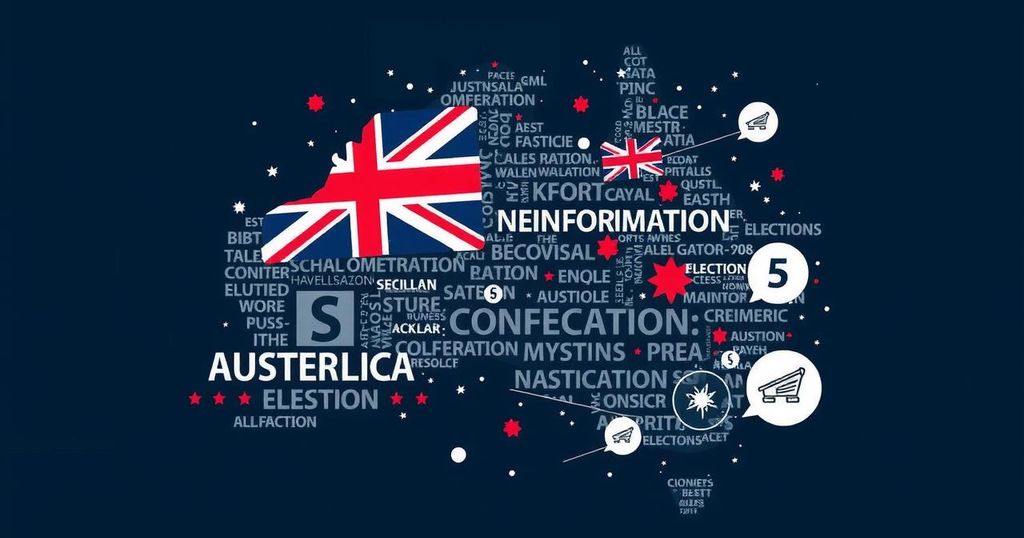The Threat of Deepfakes: Lessons from the U.S. Election for Australia

The U.S. election demonstrated the threats posed by deepfakes and misinformation. AI-generated content misrepresented political figures, significantly impacting public perception and trust. As Australia approaches its elections, similar tactics threaten its democratic processes, necessitating increased awareness and detection strategies to mitigate these risks.
The recent U.S. election has starkly highlighted the detrimental role of disinformation and deepfakes, particularly as the nation reflects on the re-election of Donald Trump. During the campaign, an array of bogus videos and images circulated, often shared by Trump and his supporters to falsely depict his opponent, Kamala Harris. These deepfake videos, created utilizing artificial intelligence, present fictitious narratives alongside recognizable figures, further complicating the public’s ability to discern truth from deception.
In late October, Microsoft issued a warning regarding the ongoing creation of AI-enhanced deepfake content focusing on Vice President Harris, with videos misrepresenting her statements and actions gaining vast traction, including millions of views on social media platforms. The technology behind deepfakes allows for rapid production, a development that poses severe risks to electoral integrity worldwide, including Australia.
As Australia prepares for its electoral contests, the reality of deepfakes becomes increasingly alarming. Studies reflect a disconcerting trend where average citizens can successfully identify deepfake images only 50% of the time and are far less reliable with deepfake videos. With deepfake detection technology lagging behind advances in content creation, Australians may struggle to counteract the potential influence of such disinformation on political perceptions, policies, and electoral trust.
Clare O’Neil, the former Home Affairs Minister, previously warned that modern technology could jeopardize the foundations of Australia’s democracy. Further demonstrations by Senator David Pocock, using deepfake technology to mimic the likeness of Prime Minister Anthony Albanese and Opposition Leader Peter Dutton, reveal just how easily this tool can be manipulated. The threats are not confined to political figures; instances where scammers have utilized deepfake technology to impersonate officials, like Sunshine Coast Mayor Rosanna Natoli, are becoming more prevalent.
Although some humorous or parody deepfakes have emerged in Australian politics, experts remain concerned about the future misuse of this technology. Research indicates that political deepfakes foster uncertainty and erode faith in reliable news sources. Furthermore, microtargeting strategies allow political actors to tailor disinformation to people’s vulnerabilities, thereby skewing public attitudes and reinforcing extreme views.
Unfortunately, the capacity to identify deepfake content decreases with age, suggesting that older Australians may face particular challenges in distinguishing authenticity. Although younger people might better recognize these fakes due to their social media presence, the echo chambers created by algorithms tend to feed their existing beliefs, impeding critical evaluation of shared content.
Ultimately, while the technological battle against deepfakes continues, the most effective defense may lie in enhancing public knowledge and awareness, which transcends technical arguments. Deepfakes represent more than a technological concern; they constitute a significant threat to the principles underpinning equitable and free elections.
In recent years, the rise of artificial intelligence has produced concerning implications for electoral integrity. The use of deepfake technology—AI-generated images and videos that depict fabricated events featuring real individuals—has emerged as a significant issue. As the U.S. navigated a tumultuous electoral period with Donald Trump’s re-election, experts observed the extensive deployment of these tools to disseminate misinformation, raising alarms internationally about potential impacts on other democracies such as Australia.
The proliferation of deepfake technology and disinformation poses an imminent threat to the democratic process, as evidenced by recent events in the U.S. As Australia prepares for its elections, it must be vigilant against similar tactics that could undermine public trust and distort political narratives. Enhancing public awareness and detection capabilities will be essential to safeguarding the integrity of electoral systems against the manipulative potential of AI-generated content.
Original Source: theconversation.com







